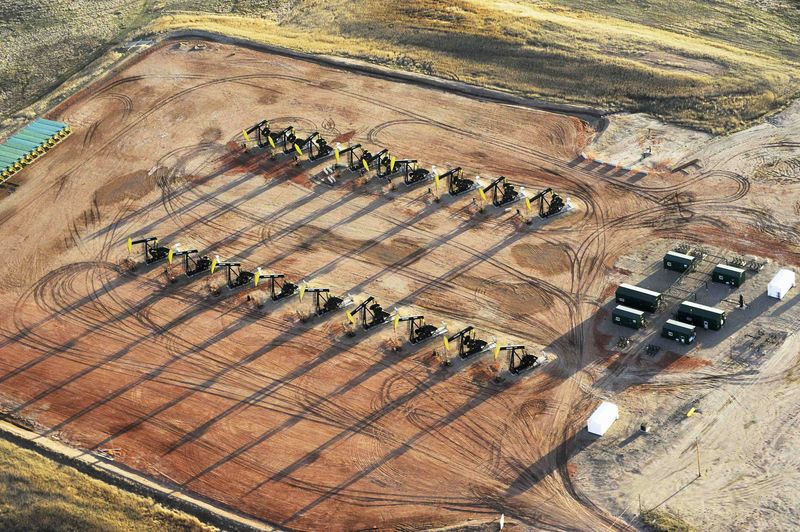By Shadia Nasralla
LONDON (Reuters) -Oil prices rose on Wednesday amid caution as falling stocks in a generally tight market countered the negative impact of uncertain Chinese demand growth, lower gas prices and reports that the United States would release more oil from its reserves.
futures for December settlement were up 30 cents, or 0.3%, to $90.33 a barrel by 1349 GMT. Earlier in the session, Brent hit a low of $89.32.
U.S. West Texas Intermediate crude for November delivery, expiring on Thursday, was at $83.16 a barrel, up 34 cents, or 0.4%. The December contract was at $82.41, up 34 cents, or 0.4%.
In the previous session, the contracts fell to their lowest in two weeks on reports that U.S. President Joe Biden plans to release 15 million barrels of oil from the Strategic Petroleum Reserve (SPR).
British and Dutch wholesale gas prices fell this week on the back of mild weather, full gas storage tanks and plentiful liquefied tanker arrivals.
“The outlook for European gas prices over the coming months has taken a knock and with it the prospects for gas-to-oil switching,” said PVM analyst Stephen Brennock.
China this week postponed the release of some key economic data, a highly unusual move that stoked fears of weak growth.
But there were also some signs of resurgent Chinese oil demand, including private mega refiner Zhejiang Petrochemical Corp (ZPC) and state-run ChemChina receiving further import quotas.
A pending European Union ban on Russian crude and oil products and the output cut from the Organization of the Petroleum Exporting Countries and other producers including Russia, a group known as OPEC+, of 2 million barrels per day also supported prices.
“With Brent stabilising around $90 and WTI between $80 and $85, you have to wonder how OPEC+ countries will feel about how the markets are positioned and whether further cuts could be considered,” OANDA analyst Craig Erlam said.
The EU’s sanctions on Russian crude and oil products will take effect in December and February, respectively.
“Prices need to rise above $100 a barrel in the coming months to slow demand growth and restore the supply-demand balance, in our view, given that oil inventories stand at a multi-year low,” said UBS analysts in a note.
In the United States, crude oil stockpiles fell about 1.3 million barrels, according to market sources citing American Petroleum Institute figures. [API/S]
Official data is due at 10:30 a.m. (1430 GMT). [EIA/S]




































